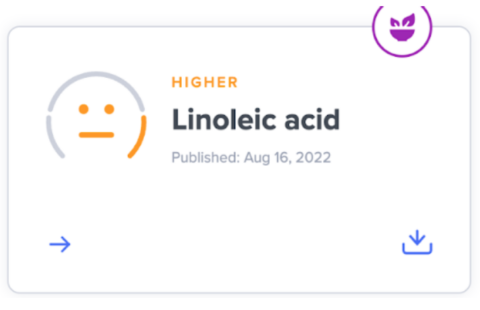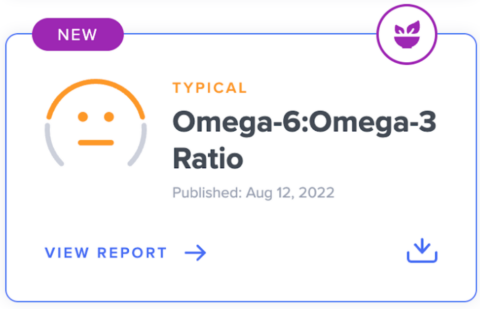
In an ideal world, everyone would be optimally healthy all of the time. However, life gets in the way and it isn’t always so easy.
My health philosophy revolves around some core concepts I’ve outlined below.
Focus on a specific goal
Although it might seem like I pay a lot of attention to my health for the sake of being “healthier”, I’m actually quite focused on specific goals. I typically have 7 main goals, and rotate which goal is the top priority.
- Mood
- Cognitive function
- Energy, libido, motivation & wakefulness
- Creativity, sociability, and extraversion
- Immunity
- Anti-aging & Longevity (disease prevention)
- Gut health
As an aside, you might notice that body composition is not even on this list. That’s because it isn’t a goal of mine. When you improve how your whole body functions, then your body is also going to look better as a side effect.
Measure specific outcomes
It’s one thing to say I have a general goal of having more energy or motivation, but I like to break it down after that. What does that mean?
For example, I define motivation as the ability to work more without trying. And then I measure how many hours I work in the day without trying to work. So I take a broad concept and break it down into more measurable variables that I can keep track of.
It shouldn’t feel like a struggle or effort
If whatever I implement feels like a struggle, then I know I won’t keep with it long-term. I implement what I know I can follow in the long term and fits with my overall life goals. This also means I never feel like I have failed by not doing something
It shouldn’t take a lot of time or money
For the past 6 years, I’ve been focused on being a CEO and building SelfDecode. I did not have the luxury of spending a lot of time focused on my health.
I don’t think people should need to be rich to be healthy. And I feel like if something is too expensive, then I am dependent on that for me, my wife, and future kids for a lifetime of it.
Precision Health: More Results With Less Effort
The 80/20 principle is when you achieve 80% of the results with 20% of the effort. Precision health works along those same lines.
Let’s be real, I haven’t met anyone doing everything right all of the time. We’re human, we fall down, we make mistakes, we diverge here and there.
And being optimally healthy always costs either time, money, or pleasure. If it took no time or cost no extra money or did not reduce pleasure, everyone would be optimally healthy all of the time.
For me, avoiding cooked vegetable oils right now would cost both time and money, but I care more about the time aspect.
In terms of pleasure, I drink alcohol a few times a week, I disrupt my circadian rhythm often when traveling, working late, or partying. I very often eat out at restaurants and order a lot of takeout. Once a month, I’ll even smoke a cigarette.
Are these healthy behaviors? No.
But, that’s the interesting thing. If you looked at me 10 years ago, I was literally spending 8 to 10 hours a day doing things to be healthy, because I was listening to everything that everyone said is healthy.
Now, I may spend 5 hours a week to be healthy and I am able to have more fun and enjoy my life more.
Despite all this, and being 10 years older, I am more healthy now than ever before.
When I was sick, you wouldn’t imagine how diligent and scrupulous I was with every little health detail. I never partied or drank any alcohol or stayed out late. EVERYTHING I ate was organic and home cooked.
I was doing everything “right” and still had a lot of health issues.
That’s when I realized that I needed to figure out the right things for ME. Sure, in a perfect world, everything we did would be the “healthy” thing.
But, we’re humans and we like to have fun and do things that aren’t so healthy.
The trick is to know where your weak points are and focus on those.
To identify my weak points, I rely on checking out my DNA, symptoms and biomarkers. This is why I made sure that SelfDecode was built to analyze all these pieces of the puzzle.
And that is the beauty of knowing your genetic blueprint – it helps you identify where your weak points are so that you can focus on them.
I combine this knowledge with experiments to see if I can notice a difference with a given change.
How Do I Determine If Something is Good for Me?
I’ve stopped arguing about what’s healthy or not healthy when there’s contradicting science on a topic, because it’s not relevant to my framework for peak health.
If something has overwhelming scientific evidence, and there’s a broad consensus on it, then that’s something that I will try to follow – things like exercising, getting quality sleeping, or drinking water.
Almost always, anything with broad consensus also produces a noticeable effect and reinforces me to want to follow that behavior.
However, there are a lot of things that don’t have broad consensus – saturated fat, animal foods, coffee, alcohol, butter, dairy, and vegetable oils, to name a few.
When it comes to the gray areas, I ask myself three questions to determine if it’s good for me personally.
1) What does my DNA and family history say?
2) What are the results of my experiments?
3) How are my blood tests/biomarkers affected by it?
Applying My Method to Canola Oil
Vegetable oil, such as canola oil, is a great example.
There’s reason and evidence to believe that it might be good for you and bad for you in different ways.
Usually, in these cases, it means that it’s dependent on your genetics and the nuanced details of how you are consuming something, such as:
- Are you consuming overall excess omega 6?
- What are you replacing omega 6 with?
- Are you exercising?
- Are you consuming too many calories?
- Are you exposing it to high heat?
- Do you have a lot of pre-existing oxidative stress in the body?
- Do you take fish oil/omega 3’s?
Is there a healthier option? Yes, but as I’ve said before, there are always tradeoffs.
Let’s use my method to determine how bad canola oil is for me.
1) What does my DNA say about it? It says I have an increased need for Alpha-Linolenic Acid, but I have naturally higher levels of DHA and EPA. My Omega 6 to Omega 3 ratio levels are typical.
On the other hand, I have a predisposition for higher arachidonic acid, PUFAs, and omega-6, which may mean that I want to consume less of them.
In fact, after seeing this information (these reports are new), I think I will try and cut down on my omega-6 consumption.
My family history and DNA also show high risk for cardiovascular disease, but most studies either show no change or a reduction in risk from using omega 6 instead of saturated fat.
Overall, I’d say that the results are somewhat mixed, but the higher predisposition to arachidonic acid and omega 6 is concerning. I will need to check my omega 6 to omega 3 ratio.
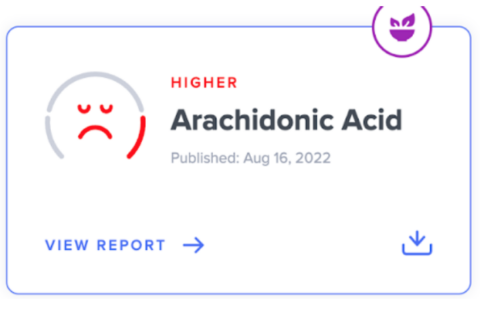
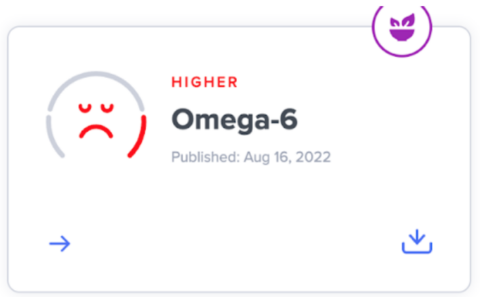


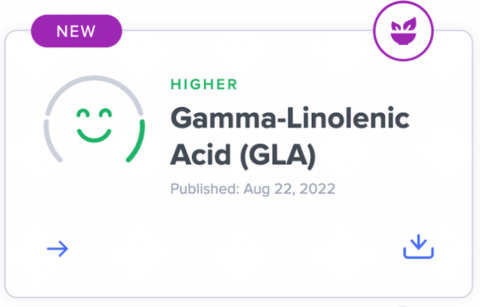
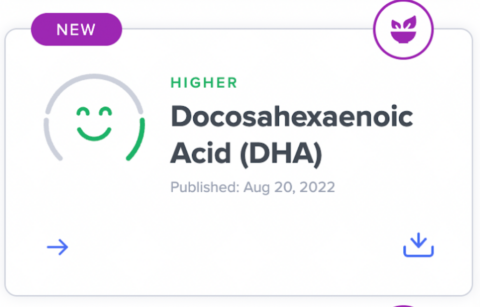
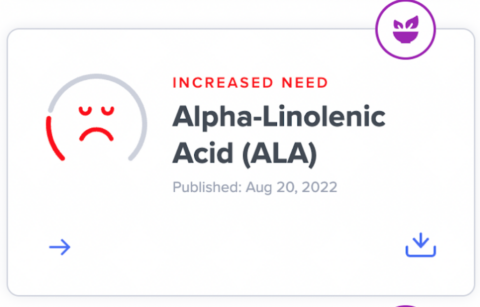
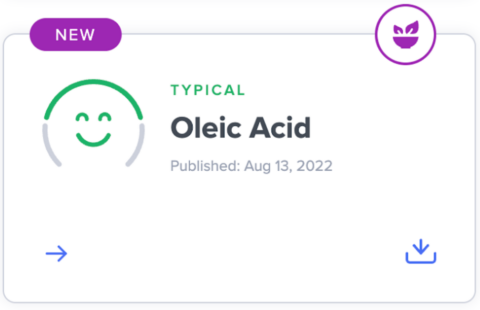
2) I’d like to get my labs checked for my omega 3 to 6 ratio, but for now, the main biomarker that is high for me is cholesterol, and omega 6 actually reduces cholesterol.
3) Experiments on how I feel – I don’t notice any significant impact in consuming omega 6 in the amount that I consume them. Keep in mind that I don’t generally eat pre-packaged foods, and I don’t eat a lot of nuts or seeds, so I don’t get much omega-6 there.
Whereas when I was consuming too much saturated fats in the form of coconut oil, I noticed a significantly negative effect on brain and physical performance.
My Takeaways For Applying the 80/20 Rule to Health
Overall I’d say that it’s definitely better if I didn’t eat as much omega 6 cooked in my food, but I’m still healthier than I ever was in the past, including when I never ate any cooked omega 6 oils.
My genetics have informed me that I need to check my omega 6 to 3 ratio ASAP and make changes if the ratio is out of balance.
The key to it is having the best understanding of your own unique body, which allows you to get better results with less effort.
I don’t know anyone who does everything optimally all of the time, which means you need to make the biggest difference possible with the healthy choices you make.
You can do this by looking at your genetic makeup and current biomarker levels.
I’ve always felt that without intelligent software, I’m limited in what I can discover about my body by just reading PubMed and conducting experiments on myself because it’s like flying blind. You don’t know if what you’re trying even makes the most sense for your body.
The easiest way to figure out where to start is with a software like SelfDecode that will automatically analyze 83M genetic variants so that you don’t have to do it manually, and instantly flag any biomarkers that are out of optimal range.
In addition, SelfDecode is the only consumer software that uses AI & Polygenic Risk Scoring to calculate genetic predisposition, using thousands or millions of variants for the most accurate analysis on the market.
